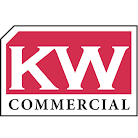5 Hidden Costs of Buying a Restaurant Property You Might Not Expect (San Antonio, TX)
Buying a standalone restaurant property can be an exciting step toward business ownership or investment growth. But beyond the purchase price and loan terms lie a number of hidden costs that can catch buyers off guard — and eat into your budget fast.
Whether you're purchasing the building to operate your own restaurant or lease it to a tenant, understanding these overlooked expenses will help you plan smarter and avoid nasty surprises.
1. 🧯 Code Compliance & Upgrades
Many buyers assume that just because a building was previously a restaurant, it’s ready to go. But that’s rarely the case.
Local fire, health, and ADA codes often change over time, and older buildings may no longer be in compliance. Common (and costly) upgrades include:
-
Fire suppression and sprinkler systems
-
Grease traps and ventilation hoods
-
ADA-compliant bathrooms and entrances
-
Exit signage, lighting, and emergency egress
2. 🧾 Property Taxes and Insurance Adjustments
After closing, expect a property tax reassessment — especially if the purchase price is significantly higher than the previous owner’s basis. That means:
-
Higher annual property taxes
-
Possible supplemental tax bills mid-year
Also, commercial property insurance can spike depending on:
-
Building condition and age
-
Fire zone or flood risk
-
Whether the restaurant will serve alcohol
Tip: Get tax and insurance quotes before closing, not after.
3. 🔌 Utility Upgrades & Deposits
Many restaurant properties have existing gas, electric, and water connections — but that doesn’t mean they’re sufficient.
Some common surprise costs:
-
Upgrading the electrical panel for modern kitchen equipment
-
Paying city utility connection or permit fees
-
Security deposits required by utility providers (especially for new businesses)
4. 🧰 Deferred Maintenance
Even if the property passes inspection, you may still inherit maintenance issues like:
-
Aging HVAC systems
-
Roof leaks or drainage issues
-
Old water heaters or plumbing lines
Some owners patch problems for a quick sale. That’s why it’s critical to have licensed commercial contractors inspect the systems thoroughly.
Pro Tip: Request a repair credit or price reduction if you find major deferred maintenance.
5. 📄 Legal & Professional Fees
Don't forget the “soft costs” involved in the transaction, including:
-
Attorney fees for reviewing contracts and permits
-
Title insurance and escrow fees
-
Business licensing applications
-
Surveyor costs (required by many lenders)
And if the restaurant includes assets like kitchen equipment or a business name, additional documents (like asset purchase agreements) may be needed.
-
Conclusion
When buying a standalone restaurant property, the list price is just the beginning. From utility upgrades and code compliance to legal fees and tax adjustments, the hidden costs can quickly add up.
A thorough due diligence process — and the right team — can help you uncover these costs early and budget wisely. Whether you're buying to launch your dream restaurant or invest in a food-service property, make sure you're seeing the full financial picture.
Need help identifying potential costs before you commit? I’d be happy to walk you through a full buyer analysis and connect you with trusted inspectors, lenders, and contractors.
.png)
Comments
Post a Comment